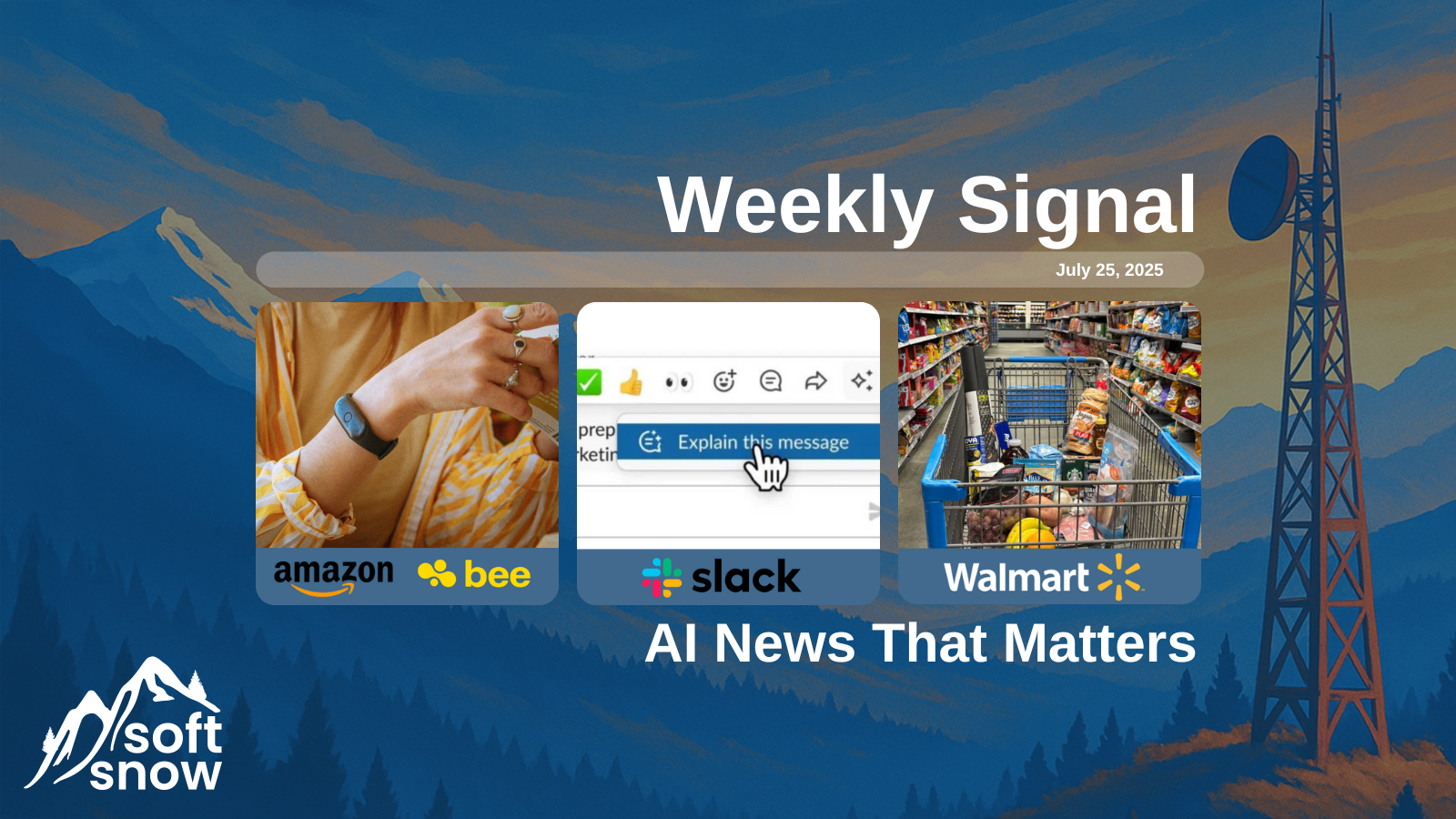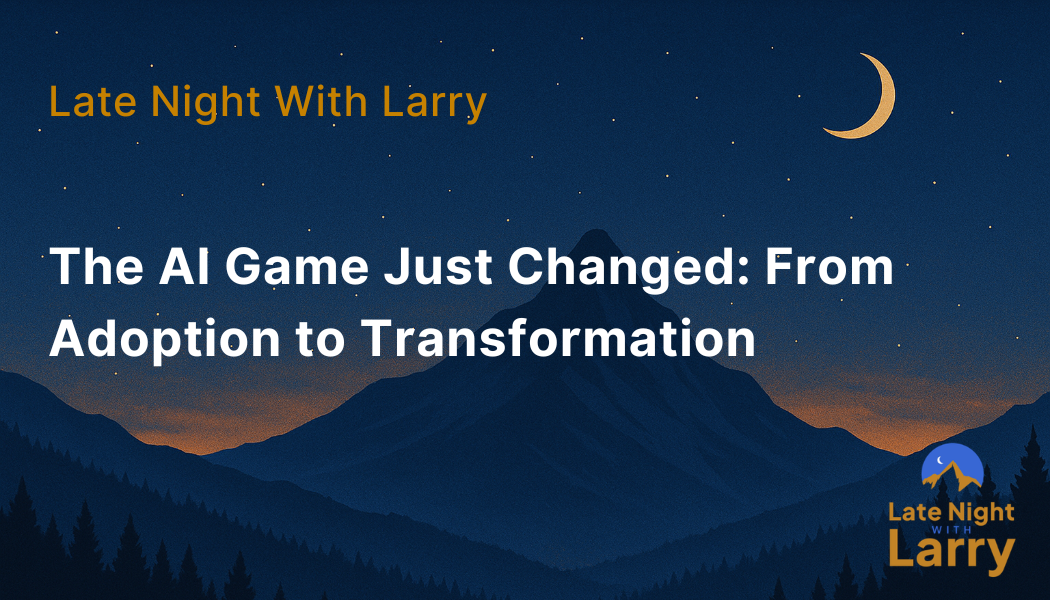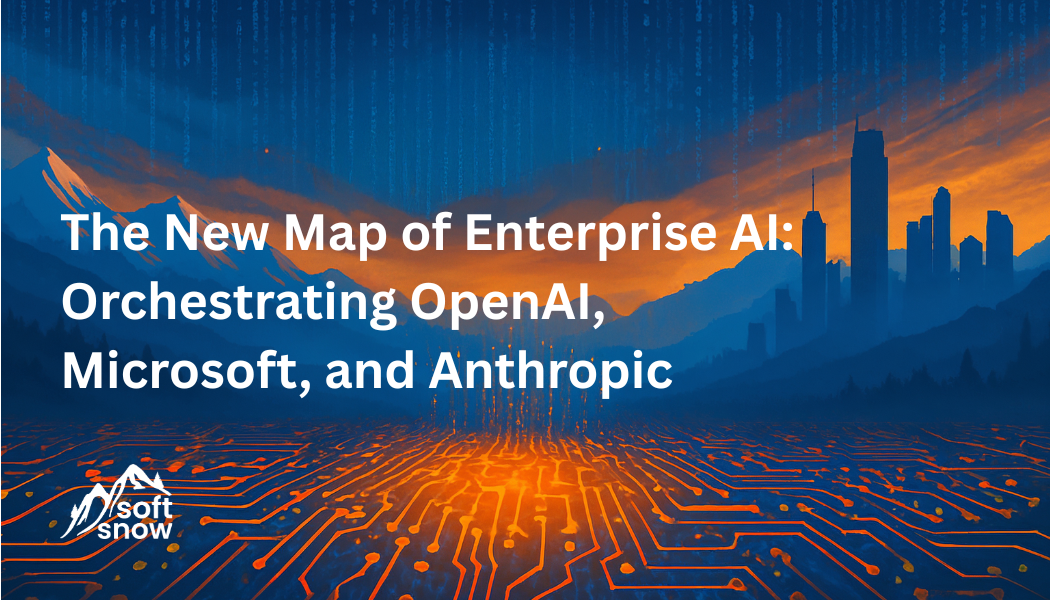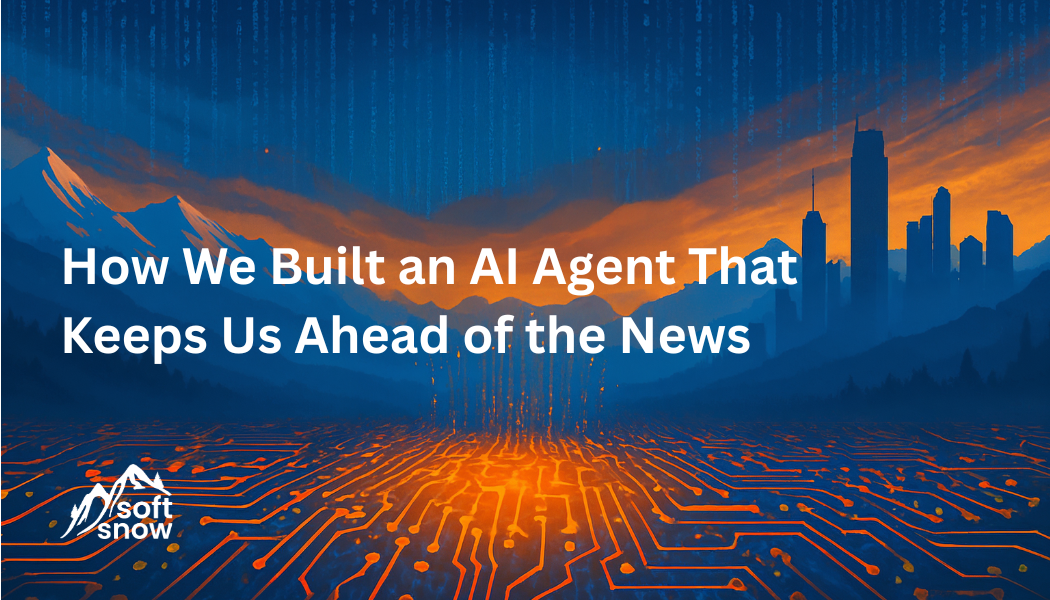
This week’s developments focus on making sophisticated AI capabilities more accessible, efficient, and immediately valuable for users across the spectrum.
________________________
Amazon Makes Strategic Move Into AI Wearables
Amazon is set to acquire Bee, a San Francisco-based startup known for its $50 wearable AI assistant, the Pioneer bracelet. The device records and transcribes user activities, generating to-do lists and conversation summaries.
In 2023, Amazon discontinued its Halo-branded health trackers as part of broader hardware cuts, but is now re-engaging with wearable technologies. Following the relaunch of its Alexa assistant with an enhanced AI earlier this year, the company indicates it may integrate Bee's AI technology into future Alexa-powered devices.
SoftSnow Take:
Let's be honest—we're all drowning in data but starving for insights. That's where this AI solution really shines in today's busy work environments. It works alongside teams to automatically capture and organize information that would otherwise require hours of manual entry. Instead of spending Friday afternoons transcribing meeting notes or compiling activity reports, people can focus on making decisions that drive growth.
What's exciting about this approach is how it respects the human element—it's not about replacing anyone, but rather removing the tedious tasks that no one enjoys anyway. Organizations typically see immediate time savings while also uncovering patterns and opportunities they were missing before. It's a practical way to start an AI journey with clear, measurable benefits from day one.
________________________
Slack’s New AI Decodes Workplace Jargon
Slack is rolling out new AI features aimed at streamlining workplace communication, with a particular focus on helping users quickly understand confusing company language. A new AI message context tool will allow users to simply hover over an acronym or unfamiliar phrase in a message to get an instant explanation. This feature will intelligently draw on the specific vocabulary and conversation history of that user's workspace, providing clear definitions for project names, internal tools, and team-specific shorthand.
The goal is to eliminate the need for employees to manually look up terms or interrupt colleagues for clarification, saving valuable time and enabling them to stay focused on their most important tasks. Slack is also adding an AI writing assistant for canvases to automate repetitive writing and an action item feature for task management, but the company jargon tool stands out for its direct impact on daily communication clarity.
SoftSnow Take:
This tool is a perfect example of how AI can solve real workplace headaches. By instantly explaining acronyms and industry terms based on your team's specific vocabulary, it eliminates those "what does that mean again?" moments that slow everyone down. We're seeing operations leaders particularly excited about this because it addresses a common frustration—new team members spending hours trying to decode internal language instead of contributing their expertise.
Beyond just saving time, it creates a more inclusive environment where everyone can participate fully in discussions, regardless of their tenure. It's a simple solution that delivers immediate value while supporting your broader goals for team collaboration and operational efficiency.
________________________
Walmart Hires Instacart Product Chief to Accelerate AI Strategy
Walmart is significantly boosting its AI capabilities by hiring Daniel Danker, Instacart's chief product officer and head of online grocery, for the newly created role of Executive Vice President of AI Acceleration, Product, and Design. Reporting directly to CEO Doug McMillon, Danker will spearhead AI adoption and oversee product management and design, leveraging his prior experience at Instacart, Uber Eats, and Facebook.
Walmart’s strategic move highlights its commitment to integrating AI throughout its operations to enhance its competitive edge, mirroring a broader industry trend of major companies actively recruiting top talent for AI-focused roles.
SoftSnow Take:
This decision shows how companies are seeing AI not just as a tech trend, but as a real driver of business growth. The key is approaching AI integration with people in mind—it's about empowering teams to deliver better customer experiences and streamline operations that have been manual for too long. We're seeing mid-market companies move beyond the "we should do something with AI" phase to actually implementing solutions that create immediate value.
The most successful organizations aren't getting caught in endless planning cycles; they're partnering with experts to identify specific workflows where AI can make a difference today while building toward tomorrow's opportunities.
________________________
These rapid developments demonstrate both the urgency and opportunity of this moment. The good news? Meaningful AI implementation doesn't require enterprise-scale resources or massive infrastructure investments.
The most successful AI transformations aren't about chasing every new capability; they're about identifying where technology can solve real business problems and empower your existing teams. Whether you're building infrastructure, creating new user experiences, or seeking competitive advantages, the key is approaching AI with purpose and practicality.
At SoftSnow, we understand that successful AI adoption isn't just about acquiring technology: it's about thoughtful integration that enhances human potential rather than replacing it, allowing teams to work smarter and achieve more while staying true to core business objectives. Contact us today to learn more.





